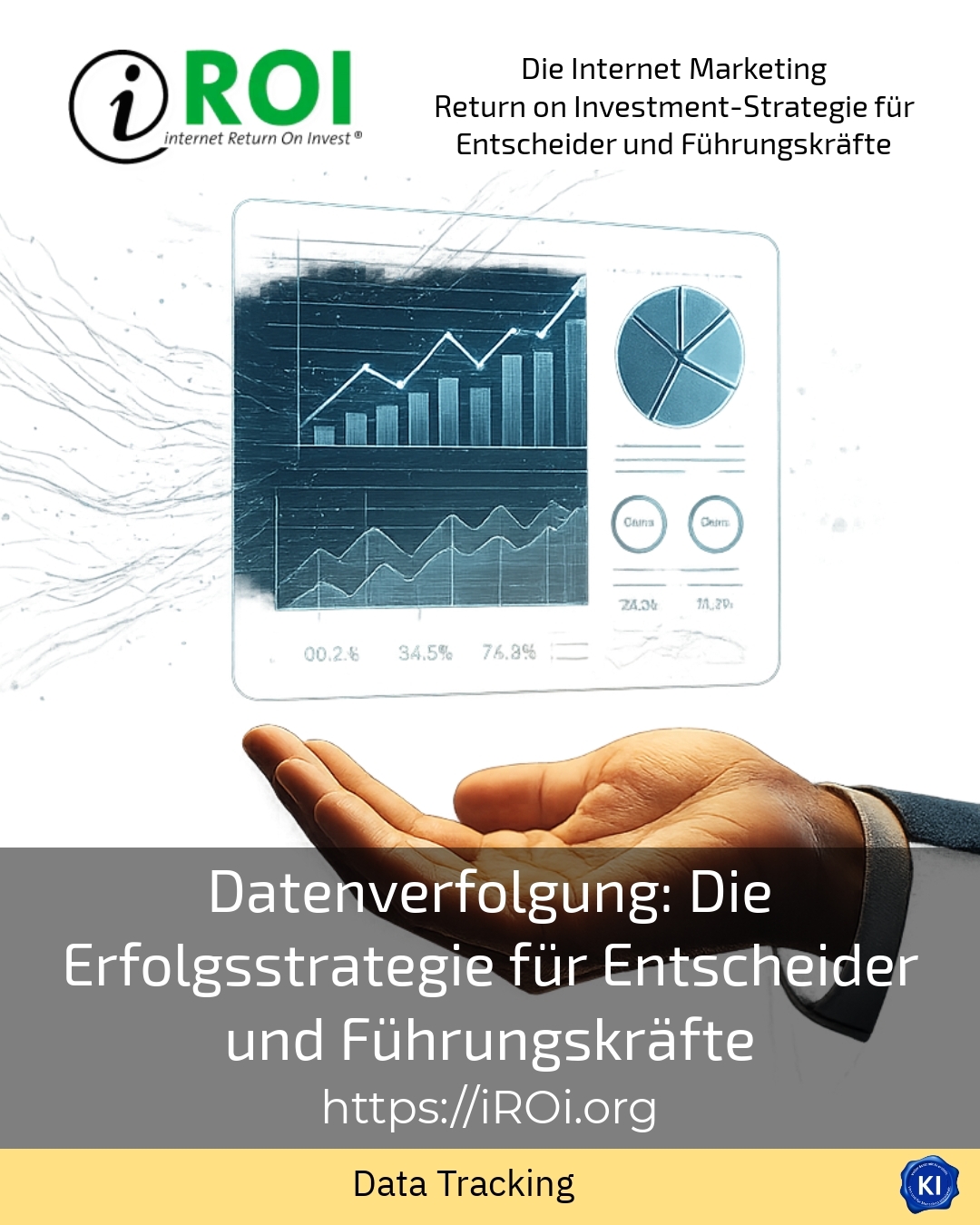The importance of data tracking for decision-makers and managers
Data tracking is an essential building block for modern decision-making processes in companies. It helps managers and decision-makers to manage projects and processes based on data and thus supports the development of strategies that are based on up-to-date information. Particularly in times of increasing complexity and dynamic markets, careful data tracking creates transparency that enables risks to be recognised at an early stage and an efficient response to be made.
Data tracking is not just about collecting facts and figures, but requires a holistic approach that combines technical systems and professional support. Decision-makers often report that the regular evaluation and interpretation of data provides decisive impulses that lead to process optimisation and the promotion of innovation.
How data tracking effectively supports projects
Data tracking plays a central role in the monitoring of projects. Managers use the insights gained to monitor progress, identify bottlenecks and initiate targeted control measures. This type of data-supported monitoring helps to ensure that decisions are not made on instinct, but are comprehensible and documented.
In the manufacturing industry, for example, it can be seen time and again how data-tracked production processes minimise downtimes. Real-time data enables sources of error to be recognised and rectified at an early stage, reducing reject rates and increasing efficiency. This continuous improvement is accompanied by systematic monitoring that enables managers to react quickly to changes and reliably achieve project goals.
In the service sector, many decision-makers use data tracking to better understand customer relationships. Information on user behaviour is usually available in real time, which means that adjustments to the service can be made immediately. This data-based support increases customer satisfaction and strengthens the market position in the long term.
Best practice from the industry
BEST PRACTICE at company XYZ (name changed due to NDA contract)
The company optimises its production planning through targeted data tracking in the material flow. The real-time data helps to significantly reduce reject rates and recognise bottlenecks at an early stage. All important process data is prepared for the specialist departments so that well-founded decisions can be made on process optimisation. This strengthens competitiveness and ensures sustainable increases in efficiency.
BEST PRACTICE at service provider ABC (name changed due to NDA contract)
A service provider uses a data-tracked dashboard that maps customer interactions in detail. This enables managers to react to potential service failures in real time and better understand individual customer needs. Specialist support in interpreting data enables processes to be continuously improved and new impetus to be provided for strategic decisions.
BEST PRACTICE in the financial sector DEF (name changed due to NDA contract)
A financial services provider relies on automated risk analyses that are supported by continuous data tracking. Monitoring market data and risk parameters enables potential risks to be identified at an early stage. The combination of data tracking and expert knowledge creates a basis for well-founded decisions and reduces potential losses.
Data protection and trust - indispensable building blocks
In addition to the technical and functional aspects, data protection is an indispensable factor for successful data tracking. Managers and decision-makers consider compliance with legal requirements as an integral part of their strategy. Data protection-compliant implementation not only protects against legal risks, but also increases the trust of customers and partners.
Dialogue with customers often shows that transparency and responsible handling of data promote stable business relationships. This often leads to a better market position and has a positive effect on the company's reputation.
My analysis
Supporting projects through data tracking is not a matter of course, but a strategic challenge. Decision-makers are well advised to select the right data and interpret it in an understandable way with professional support. This is the only way to design data-tracked processes realistically and sustainably and to generate real competitive advantages from them.
Clients often report how impulses from data tracking help them to manage projects in a targeted manner and react agilely to unforeseen developments. It is worth focusing not only on technical solutions, but also on professional support during implementation in order to utilise data tracking profitably within the company.
For more information and if you have any questions, please contact Contact us or read more blog posts on the topic TRANSRUPTION here.
Further links from the text above:
[1] Rethinking data tracking: competitive advantages for decision-makers
[4] Data strategy consulting with impact - Ventum Consulting
















